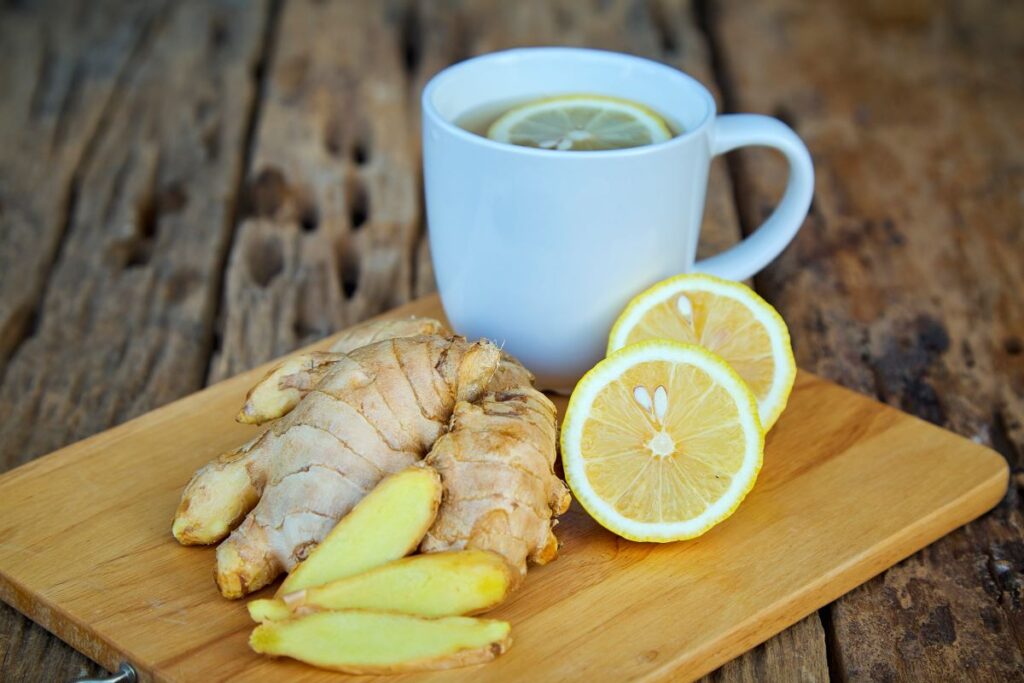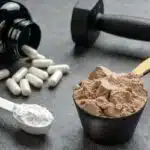Nutrition Tips for Chemotherapy Patients: Managing Side Effects Through Diet
By Reva Schlanger MS, RD, CDN
Having chemotherapy can lead to a lot of temporary but unwanted side effects. Nausea and fatigue can lead many to struggle with eating when having chemotherapy. It is important to eat well, AKA getting enough nutrition of what is tolerable for you. Nutritious food keeps up your strength, fights fatigue, and helps your body heal. Once you start treatment, it may become hard to follow your usual diet. You may need to liberalize your diet (add different types of foods and drinks) to get the nutrition you need. There currently isn’t enough research to know that restrictive diets (diets that avoid certain foods or nutrients) are safe for people who have cancer. The most important thing is to make sure you get the calories and protein you need to keep your body strong during your treatment.
Here are 10 tips and tricks to help get enough nutrition:
Nausea fighting foods
It’s difficult to eat when the thought of food makes you queasy. To help with an upset stomach, try to eat dry foods like crackers. Try to keep a stash of crackers by your night table to eat first thing in the morning followed by every few hours to help prevent nausea. Ginger, lemon, and peppermint can also help settle your stomach so it might be helpful to. Have some lemon ginger tea or peppermint sucking candies nearby.
Capitalize on favorite foods
While going through chemo, your appetite and the foods that appeal to you can vary from day to day. Remember it is okay to eat calorically dense foods that you might normally avoid/have in smaller quantities. Right now, eat what sounds good to you. The most important thing is to get enough nutrition from any food.
Small meals
With a decreased appetite, it is difficult to eat the typical 3 big meals that you may be used to. Embrace the idea of having six to eat small meals every few hours. This can help keep nausea at bay while providing the body with consistent nourishment.
Taking it easy is OK
Fatigue is a big side effect and can leave you dreading the grocery store or cooking. Plan and keep your pantry and fridge stocked with easy to prepare foods (oatmeal, canned soups, pasta are all easy to make meals). On days you feel well enough to cook, try to make extras and freeze them for later. Remember there is no shame in enlisting family and friends to help as well. Online grocery shopping is also a time saver and something you can do from the comfort of your bed!
Hydrate mindfully
Staying hydrated helps your body get rid of toxins and feel better. Drinking too much at once though can make you too full to eat. Try to drink most of your fluids in between meals and snacks. While water is a great source of hydration, if you or your doctor notice weight loss, it might be better to drink higher calorie liquids like milkshakes, fruit juices, or creamy soups.
Bulk up foods
Your body needs fat to keep up energy stores and move vitamins through your blood. Add olive oil or butter to rice and pasta or dip your bread into it. Liquid meal replacements (like Boosts, Kate Farms, Ensures, or milkshakes) can be another good option.
Increase protein
Protein needs usually increase while going through chemotherapy as protein helps repair body tissue and keeps your immune system healthy. Snack on peanut or almond butter with fruit. Add chopped or ground nuts to baked goods, salads, or ice cream. Other easy options include cheese and crackers, egg salad, or a bowl of cereal with milk.
Accommodate taste changes
Chemotherapy can change your sense of smell and taste for a while. Maybe you get a bitter, metallic taste with some foods. To solve this, try plastic silverware rather than metal. Choose frozen or fresh vegetables and fruit over canned. Try foods you’ve never eaten before, so you won’t notice if they taste “off”.
Mealtimes can be anywhere
Chemo can zap your energy which may leave you struggling to get out of bed. Food is still necessary to keep your energy up so it’s okay to eat in bed. Have friends or family help bring you some foods to eat or keep a drawer full of snacks by your bedside table. While we normally promote mindfulness, when it comes to nutrition during chemo the rule is do whatever is easiest! Eat while you watch TV or listen to music. At the end of the day, the most important thing is to keep eating, even when you do not feel like it.
Ask the experts
Ask your doctor about seeing a registered dietitian. They can make an eating plan, suggest vitamins and supplements (if tolerable), and help you mitigate the negative chemotherapy side effects.
While the above help with eating, you may be wondering what the deal is with dietary supplements (vitamin, mineral, and herbal supplements). You can get all the nutrients you need from a well-balanced diet, and a supplement, besides from Vitamin D, is not recommended while going through chemotherapy. Depending on your specific cancer treatment, taking a a dietary supplement can harm you or change the way your treatment works. If you’re thinking about taking any dietary supplements, talk with your doctor first. A registered dietitian or pharmacist can also answer your questions.
References:
- Eating well during your cancer treatment. Memorial Sloan Kettering Cancer Center. https://www.mskcc.org/cancer-care/patient-education/eating-well-during-your-treatment. Accessed October 16, 2022.
- de Vries, Y.C., van den Berg, M.M.G.A., de Vries, J.H.M. et al.Differences in dietary intake during chemotherapy in breast cancer patients compared to women without cancer.Support Care Cancer 25, 2581–2591 (2017). https://doi.org/10.1007/s00520-017-3668-x
- Barrera S, Demark-Wahnefried W. Nutrition during and after cancer therapy. Oncology (Williston Park). 2009 Feb;23(2 Suppl Nurse Ed):15-21. PMID: 19856583; PMCID: PMC2770876.
- Ambrosone CB, Zirpoli GR, Hutson AD, et al. Dietary supplement use during chemotherapy and survival outcomes of patients with breast cancer enrolled in a cooperative group clinical trial (SWOG S0221).Journal of Clinical Oncology. 2020;38(8):804-814. doi:10.1200/jco.19.01203







